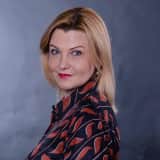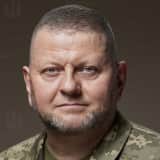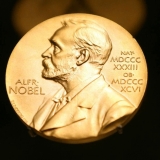War Speeches. Russia Uses the UN Security Council for Propaganda, and Ukraine Is Preparing for a Counteroffensive
Last week (April 10–16), the US and Ukraine reacted to the leaked US intelligence secret documents. Among other things, they said that Washington doubted the success of the Ukrainian counteroffensive.
On the other hand, Russia passed a law on electronic draft notice, and continues to share misinformation claiming that the Ukrainian army is shelling civilians with Western weapons, as well as about the "American biolaboratories" in Ukraine.
At the same time, Russia is actively using Hungary who often plays along with Moscow arguing that when the West stops supporting Ukraine, the war will end.
In the context of the "leak" of secret documents, Ukraine says that it is capable of winning in the battlefield
On April 6 and 9, journalists discovered secret US intelligence documents on social networks. They were referred to in the analytics published by the most influential world media: The Washington Post, The New York Times, Politico, CNN, The Economist. The documents cover issues ranging from support for Ukraine (such as the Pentagon's assessment of the potential success of the Ukrainian counteroffensive) to information about major U.S. allies, such as Israel.
On April 9, the United States launched an investigation into this fact, and on April 13, the FBI arrested a suspect in the publication of classified documents. It turned out to be a soldier of the American military base who shared secret documents with a group of virtual acquaintances through the Discord messenger popular among gamers.
On April 10, the US publication CNN cited a source close to Volodymyr Zelensky and reported that Ukraine had already changed some of its military plans due to the leakage of the documents.
In Ukraine, on April 14, the "United News" telethon invited the Secretary of the National Security and Defense Council (NSDC), Oleksiy Danilov, for comments. According to him, the "leakage" of secret documents does not affect the plans of the counteroffensive.
At the same time, he stressed that Ukraine’s decision on the counterattack will be "last moment." "We are aware of all the processes taking place at the front. All assumptions about the plans of the Ukrainian army, including the counteroffensive, have no grounds behind. It will all be decided at the last moment, when the final decision will be made," the NSDC secretary said.
According to Danilov, the military command is considering various options for the developments at the front. That is why the final plan of the counteroffensive is not known to anyone. "If someone thinks that we have one option only, then it is not true. The Ukrainian military has neither one, nor two, nor three, and nor four options for the developments at the front," he said. The NSDC Secretary explained that the final plan of the counterattack will depend on many factors to be assessed on a daily basis.
These words were also preceded by an interview with Ukrainian Prime Minister, Denys Shmyhal, which he gave to The Hill while on a working visit to the United States and Canada. The head of the Ukrainian government said that a counterattack could take place in the summer. However, at the end of March, the Minister of Defense of Ukraine, Oleksiy Reznikov, said that the counteroffensive is planned for April or May.
In addition, Denys Shmyhal said that the leakage of classified information will not prevent Ukraine from liberating its territories. "We have repeatedly proven that we can do this. From our international partners, we are asking for more military capabilities, such as tanks, ammunition, aircraft, and armored vehicles," the Prime Minister said.
Another "leak" to which Ukraine reacted concerned the US assessment of the potential Ukrainian counteroffensive. Thus, on April 10, the The Washington Post published a read with reference to one of the secret documents that leaked online. Journalists concluded that U.S. intelligence doubts the success of the Ukrainian counteroffensive.
The document, to which the authors of the material refer, predicts rather modest successes of Ukraine. Kyiv's strategy is allegedly to reclaim territories in the east and move south to disrupt the land bridge connection from Russia to Crimea. Powerful Russian defensive fortifications, combined with "enduring deficiencies in training and munitions supply by Ukraine, are likely to strain the progress and exacerbate casualties during the offensive," the document says.
The United States had had to respond to this publication. US Secretary of Defense, Lloyd Austin, said that Ukraine has much of the capability it needs to launch a successful counteroffensive in spring. According to him, Ukrainians have "a great plan to start" but only President Zelensky and his leadership really know the full details of that plan.
In addition, Minister of Foreign Affairs of Ukraine, Dmytro Kuleba, had a telephone conversation with US Secretary of State, Antony Blinken. "Blinken reaffirmed the ironclad US support and vehemently rejected any attempts to cast doubt on Ukraine's capacity to win on the battlefield," the Ukrainian Foreign Minister wrote on Twitter.
He added that the US remains Ukraine’s trustworthy partner, focused "on advancing our victory and securing a just peace."
The Kremlin tightens the screws and yet again talks about bio-laboratories and weapons in Ukraine
Last week, Russia decided to simplify the process of replenishing its own army by legitimizing electronic draft notices. On April 11, the State Duma of the Russian Federation passed through three readings the bill equating electronic draft notices with paper versions; and on April 14, Vladimir Putin signed the appropriate law.
Now the draft notices can be sent through the e-account in the "State Services" section. As of the end of 2020, the e-platform was used by 126 million Russians. The draft notices will be considered as received immediately after their placement in the client account, and the conscript will not be able to leave Russia until they show up at the military registration and enlistment office. In addition, "evaders" may be subject to restrictions in the form of a ban on driving, concluding real estate transactions, registering private enterprises, or taking loans.
Press Secretary of the President of Russia, Dmitry Peskov, rushed in to reassure the Russians that the innovations are associated with military register, rather than with a new wave of mobilization.
"Military registration is something that citizens of our country constantly face, at least once in their lifetime, Therefore, the system must keep pace with the demands as the times dictate," he said.
However, the statements of the Kremlin leadership regarding mobilization and the army are often untrue. One can recall Putin's words at the beginning of a full-scale invasion, when he assured that only professional military were involved in Ukraine: "There are no conscripts, and we do not plan to do this, and we are not going to." A week before the announcement of partial mobilization, Dmitry Peskov denied the Kremlin's plans to refill the army in this way.
According to British intelligence, the introduction of draft e-notices does not indicate the preparation of another wave of forced mobilization. It rather aims at the future, to wage a long war.
Meanwhile, the Kremlin continues to pursue a disinformation policy, using international platforms for this. The same as last week, Russia used its UN Security Council presidency to promote their own narratives. On April 10, the Russian Federation held a debate in the Security Council on the risks arising from violations of interstate obligations to supply military products. Even such a seemingly depoliticized topic did not prevent Russia from criticizing the supply of weapons to Ukraine.
Vasily Nebenzya emphasized that Ukraine allegedly used the provided weapons against civilians and civilian infrastructure. Moreover, the weapons allegedly land on black markets, provoking an increase in crime and violence in the world. He accused the West of fueling the Ukrainian crisis and "splicing" the defense industry and national governments. According to the Russian permanent representative, the huge funds allocated to help Ukraine are allegedly deposited in the pockets of Western manufacturers of weapons and military equipment, which, due to the conflict in Ukraine, have almost doubled their profits.
"The West is not interested in putting an end to the crisis in Ukraine. They would prefer the crisis to continue, which they are not ashamed to talk about aloud," Nebenzya said.
In addition, the discussion exposed Russia's real concerns about military assistance to Ukraine – the lack of understanding of the real volume of supply and production of Soviet-style weapons, which may still be in demand in the Ukrainian army. Therefore, Russia proposed that more countries submit annual national reports on arms exports/imports to the UN Register of Conventional Arms.
At the same time, Nebenzya advocated a ban on the production and export of weapons to third countries without the permission of the state who is the original supplier of weapons or technologies. He said that the production of Soviet-designed combat systems would restart at military enterprises in Eastern Europe, although bilateral agreements with these countries did not allow the transfer of manufactured products without the prior written consent of the USSR, or Russia as its successor state.
Another development of the last week was a 200-page Russian report on bio-laboratories in Ukraine. Thus, both chambers of the Federal Assembly of the Russian Federation approved the final report of the Parliamentary Commission on Investigation into Activities of the US Biological Laboratories in Ukraine.
The parliamentary commission allegedly discovered a network of biological laboratories in Ukraine. They are claimed to develop and store components for biological weapons, which directly threatens the national security of the Russian Federation. According to the Commission, Ukraine was made into a testing ground for US military biological tests.
The document also talked about experiments on the military, patients of psychiatric hospitals, as well as the US interest in creating a super-soldier, a cyborg soldier, in particular through the "robotization" of the military – merging a man with a machine. Also, the Russian Commission "proved" that the synthetic drug methadone was used as a means of mass anesthesia of the population of Ukraine, which facilitated the imposition of fascist and Nazi ideology among young people.
In addition, the document states that the United States seek to develop a universal genetically engineered biological weapon capable of hitting not only humans, but also animals and crops, at a fixed time in certain territories, which can cause irreparable economic damage to the enemy. And to affect people, they allegedly study the mechanisms of transmission of pathogens by insects, mammals, wild birds, and other animals through tried and tested "biological routes". It is noteworthy that the "study" has repeatedly indicated that it was thanks to the "special operation" that the United States curtailed biological work and transferred it to other countries.
"The concealed and deliberate use of biological weapons on the eve of a possible imminent direct military confrontation could create a significant advantage for US troops over the opposing side," the document says.
The Kremlin Activates the Allies but Hungary Gets Punished for Supporting Russia
At the beginning of last week, Russia, Belarus, and Hungary exchanged diplomatic visits, which re-confirmed the allied relations.
On Monday, Russian Defense Minister, Sergei Shoigu, arrived in Minsk to meet with Belarusian dictator Aleksandr Lukashenka. The latter asked Russia for "security guarantees". Lukashenka said that Western countries did not fulfill the agreements they provided in exchange for the withdrawal of nuclear weapons, so he wants Russia to protect Belarus "as its own territory" in case of aggression.
The next day, April 11, Hungarian Foreign Minister, Péter Szijjártó, arrived in Moscow, where, according to him, he reached an agreement to increase gas supplies from Russia, and updated the agreement on financing the Paks Nuclear Power Plant. In his commen on the visit at the briefing, Szijjártó insisted that access to Russian energy was crucial to Hungary's security.
At the same time, Belarusian Foreign Minister, Sergei Aleinik, arrived in Hungary on April 11, where he chaired the intergovernmental commission on economic cooperation with the above-mentioned Peter Szijjártó the next day. This meeting was marked by the fact that Sergei Aleinik called for "stopping the death of people, immediately declaring a truce and starting negotiations – the earlier, the better." He also added that allegedly "Belarus, like Hungary, is on the side of peace." Hungarian Foreign Minister Peter Szijjártó said that he had met with his Belarusian counterpart because Hungary wants peace in Ukraine: "We would like the ongoing war in our neighborhood to end." Szijjártó also praised Belarus as a "reliable transit partner".
Advisor to the Head of the Office of the President of Ukraine, Mykhailo Podolyak, called Belarus "a fake peacekeeper, which ultimatums to offer a ceasefire and sit down at the negotiating table." He added that Minsk "in fact, directly says: stop resisting and let Russia finish you." By the way, on April 12, Volodymyr Zelensky introduced a draft law on the termination of the agreement with Belarus on mutual protection of national secrets.
In addition, on April 12, the US Treasury Department imposed sanctions against the International Investment Bank (IIB), a multilateral development institution based in Budapest since 2019, but with almost 50% of Russian ownership. Once, the Hungarian government actually granted the directors and employees of this bank a diplomatic immunity, and exempted them from regulatory oversight. Because of this, the IIB was called a potential base for Russian spies.
In imposing the sanctions, the US authorities said that the presence of IIB "allows Russia to strengthen their intelligence presence in Europe." It also contributes to malicious actions in Central Europe and the Western Balkans, corruption, and evasion of sanctions.
After the introduction of these sanctions, the Orban government decided that Hungary would withdraw from the IIB, because "the bank's activities have lost their meaning due to the imposed US sanctions."
In general, as stated by the US Ambassador to Hungary, David Pressman, official Washington is "concerned that Hungarian leaders are looking for closer ties with Russia, despite its brutal aggression." Pressman mentioned that "close economic cooperation with Russia fuels the Russian military machinery and threatens the security of the transatlantic alliance." Such statements are most likely supported by many US allies. After all, as Politico notes, Hungary's blocking of Sweden's application for NATO membership confuses and irritates Western officials. The media reports that the US may announce sanctions against Hungarian "influential citizens." The bill is presumably being prepared by a group of congressmen.
The tension in relations with official Washington must be concerning for Viktor Orban, who, after the imposition of sanctions against the IIB, rushed to assure that "the United States is our friend and an important ally." The Hungarian prime minister emphasized that his country "has never agreed to sanctions against [Russia]," but "does not deny anyone the right to impose sanctions if they deem it necessary." On the same day, Orban disparagingly called Ukraine a "non-existent country in the financial sense" and added: "The question is whether we support Ukraine or not. As soon as we say no, the war will end."
This narrative was immediately picked up by Deputy Secretary of the Security Council of the Russian Federation, Dmitry Medvedev. He said Orban was "good" and added that "as soon as the Western money run out, Ukraine will run out. No one needs it."
Ukrainian Foreign Ministry spokesman, Oleh Nikolenko, in response to Viktor Orban's anti-Ukrainian statement, said that "in fact, Hungary also receives a lot of money from the EU to maintain its economic stability." He also underlined: "Supporting Ukraine is not charity. By supporting Ukraine, Europe is investing in its own security, in the first place."
In the end, we also need to add that the new sanctions from last week did not ignore the Kremlin. Thus, in addition to the above-mentioned International Investment Bank, the US imposed additional sanctions against more than 120 private individuals and legal entities, such as Rosatom, the defense sector of the Russian Federation, and entities sassociated with Alisher Usmanov, one of the richest people in Russia.
In a joint briefing with US Secretary of the Treasury, Janet Yellen, Ukrainian Prime Minister Denys Shmyhal thanked the United States for its unprecedented support and new sanctions against Russia, especially those related to Rosatom, and encouraged partners to impose sanctions against the entire Russian nuclear industry.
At the same time, the EU added to the sanctions list the Wagner PMC and the Russian news agency FAN, associated with the Kremlin oligarch Yevgeny Prigozhin.
In sum, despite the visits of courtesy between Minsk, Budapest, and Moscow, Ukraine and its allies have demonstrated diplomatic and political unity. With the newly imposed sanctions, they showed that the aggressor and his "friends" will inevitably be punished.






